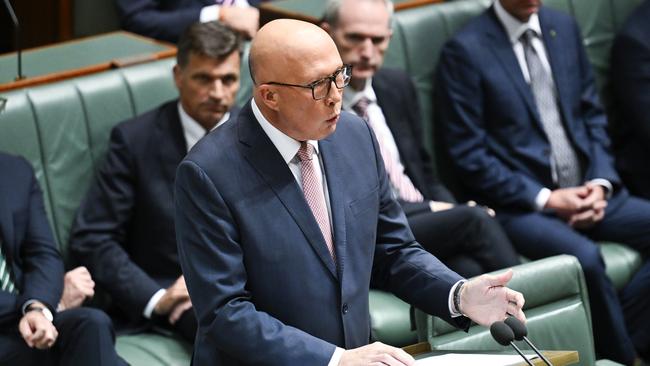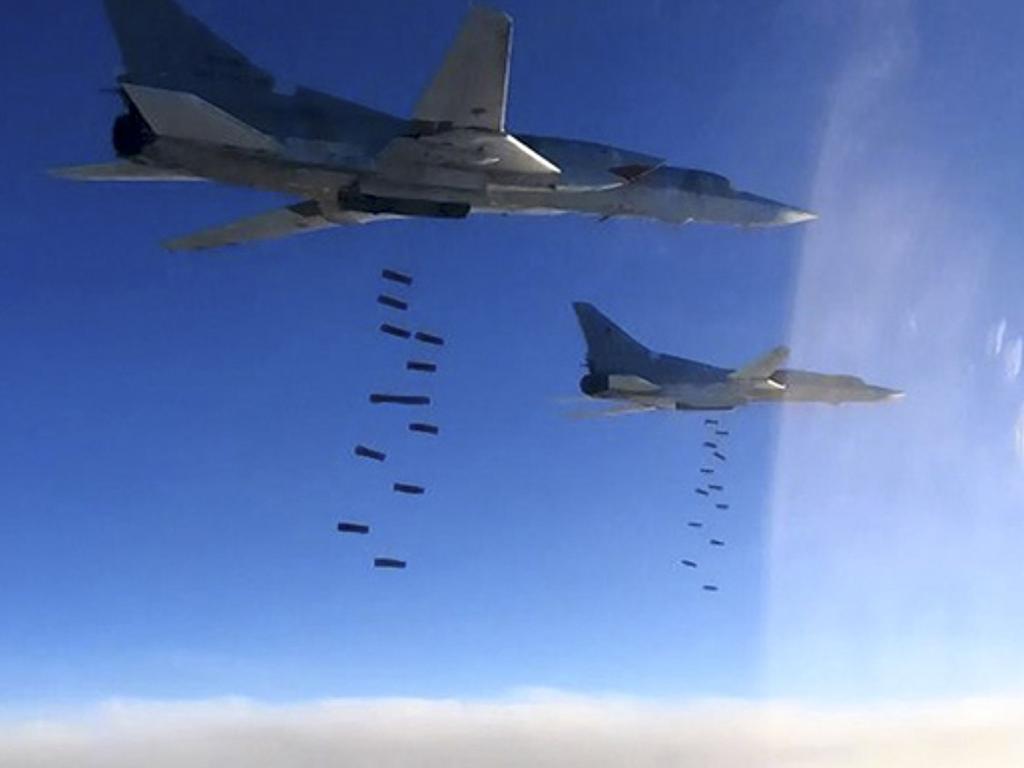Let’s ignore flashy politics, defence needs the basics first

While cost of living, healthcare and transport have dominated the early weeks of the federal election campaign, international politics has found a way to rudely – and routinely – intrude on the carefully cultivated electoral messaging of the Labor Party and the Coalition.
Alongside key domestic political issues, Donald Trump and the Chinese navy have positioned themselves as seemingly perennial features of this election.
Anthony Albanese and Peter Dutton are shadow boxing with the US President on a day-to-day basis, trying to deal with the US administration and the return of US economic protectionism.
While each side has sparred on how to best handle Trump 2.0 on trade and tariffs, at some point in the campaign both sides of politics will have to grapple with the national security consequences of Trump’s disaggregated international strategy.
Trump’s effect on international affairs is also coupled with rising demands from the US for increased burden sharing on defence spending from its allies. In recent weeks, British Prime Minister Keir Starmer has announced an increase in UK defence spending to 3 per cent of GDP. In Australia, the former chief of defence and one of the co-leads of the 2023 Defence Strategic Review, Sir Angus Houston, along with two former secretaries, Dennis Richardson and Mike Pezzullo, have all called for defence spending to increase to 3 per cent of GDP.
Sooner rather than later both sides of politics will have to debate defence spending in the campaign beyond the bipartisanship on AUKUS and the general importance of national security seen in the first two debates.

The Coalition has led so far on defence spending. The Coalition’s initial promise came in the form of their commitment to an extra squadron of F35 Joint Strike Fighters at $3bn. It was met by a Labor commitment to the budget to inject an extra $1bn over two years into defence. Neither is enough to make an impact on this vital policy area.
This pattern of Coalition pledge and Labor reply is likely to continue. Dutton has said several times, including in the first debate, that he will make some big announcements in the campaign on defence spending, which are expected this week.
So with both sides poised to make major defence spending announcements, the real question for voters when the announcements come is who is pledging to deliver better defence spending bang for the public’s bucks?
For this political campaign there are three key areas in defence spending for each side to consider and focus on: What major gap exists in the current defence investment plan that urgently needs to be filled? What critical existing areas are underfunded? And where, in an era characterised by increasing threats and the end of strategic warning time, can government accept more risk to get more capability into the hands of the ADF more quickly?
With this in mind there are some key spending priority areas that Labor or the Coalition could do during the campaign to deliver the National Defence Strategy more effectively.

First is to fill any black holes, and the biggest in the current defence investment plan is integrated air and missile defence (IAMD), especially the lack of a medium-range, land-based surface to air missile capability. IAMD is what protects the nation against air and missile threats. The critical importance of this area has been underscored by the recent conflicts in Ukraine and the Middle East.
IAMD is delivered through all military domains via aircraft, ships and land-based systems, but the ADF currently lacks a medium ranged SAM capability. This is vital to protect critical infrastructure, bases and operational areas across northern Australia.
The 2023 DSR said that a layered IAMD capability must be delivered urgently and that “Defence’s medium-range advanced and high-speed missile defence capabilities should be accelerated” focused around “in-service, off-the-shelf options”. So far none of this has happened.
Under the current settings, there is not even a clear plan or funding envelope for this area of capability and that is not expected to be identified until the next National Defence Strategy in 2026. Active defences against missile and drone attacks are absolutely critical for national resilience. This is the key area in need of urgent prioritisation and funding.
The second area of focus is far less “sexy” in terms of major political announcements than a SAM system: sustainment, maintenance and enabling capabilities. Sustainment and maintenance are what keeps the current ADF in service and able to protect the nation now.
To further enable the ADF to conduct operations, any commitment of new funds should also go to increased funding for Defence to work alongside Australian industry to delivery enabling capabilities for the integrated force more quickly. This includes electronic warfare, satellite communications, command and control, advanced automation (including drones), and key physical and digital infrastructure. These areas lack the flashy announcements of fighter jets and tanks, but they are essential to the ADF’s readiness and preparedness: enablers are the spine of the force.
In political terms, these measures can sell well through bespoke local announcements with a focus around funding the Australian defence industrial base.

Third and finally, the DSR spoke at length about the government and Defence’s accepting more risk in acquisition by making decisions more quickly and focusing on capabilities that are already in service elsewhere. The biggest current decision awaiting final decision is the navy’s general purpose frigate program.
This program is down to the final two competitors but only one of those can effectively deliver on the requirement for an “enhanced lethality surface fleet” outlined in the DSR and the subsequent independent analysis of the navy’s surface fleet. This is the Japanese Mogami-class frigate.
The Mogami is a more modern design with twice as many Vertical Launch System missile tubes as its competitor and with more advanced VLS capabilities. By accepting a moderate degree of risk, the next government could bring forward the decision by six months to mid-2025.
Consideration should also be given to saving time and cost by building more of these vessels overseas. Such a decision would dramatically increase the date of delivery for these vessels, reduce costs of the project and with some careful program management across the defence shipbuilding, sustainment and maintenance plans would have little to no impact on local industry or jobs.
New commitments to defence spending are going to be a feature of this election campaign in the coming weeks. What is needed from both the government and the opposition are realistic plans to deliver defence capability where it’s needed most in a way that avoids old-fashioned, tit-for-tat debates about flashy platforms, delivered well into the future, that are not properly funded.
Professor Peter J. Dean is the director of foreign policy and defence at the United States Studies Centre and was co-lead of the 2023 Defence Strategic Review Secretariat.





